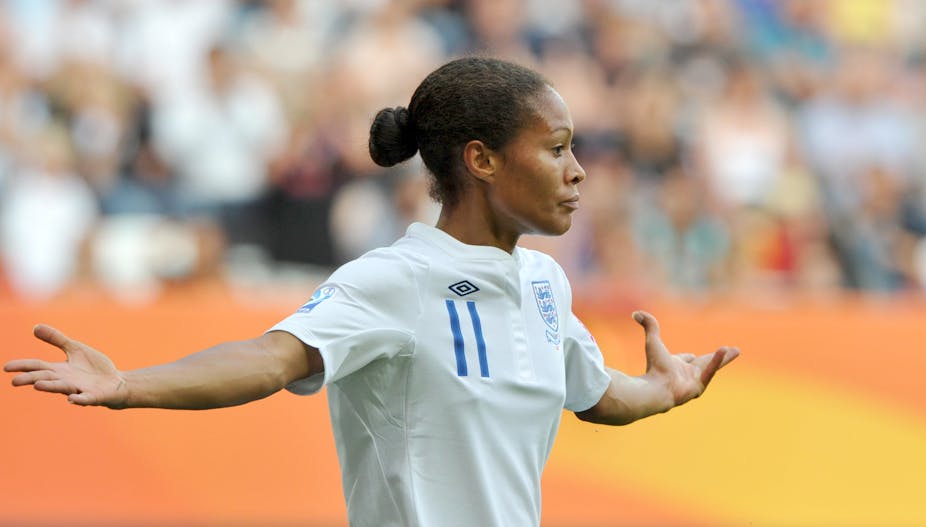It’s been a great World Cup warm-up. There have been many interesting features which have set the scene socially and politically, such as David Goldblatt’s BBC radio series and book on Brazil’s love affair with the beautiful game, as well as getting us all fired up for what promises to be a wonderful festival of football.
But where will the women be? Critical commentators on the tournament in Brazil have paid more attention to the problems of poverty and the politics of corruption than sexual divisions and gendered inequality in Brazil – or in football.
I can’t wait for the first game of the tournament, but I wonder whether 2014 is going to be different for what it says about the women’s game and, in particular, about how women are represented to the world that tunes in. Will it be like 2010 with the absence of any women as pundits and the main focus on gender being about women as sex workers?
Before the last tournament in South Africa, prostitution was temporarily legalised as one of the entertainments to be laid on for fans, in recognition of the increase in demand for sex workers at mega events attended by large numbers of men. There was opposition from church leaders but support from sex workers, for whom this would be an employment opportunity.
Beyond WAGs and prostitutes
Brazil is not the most egalitarian of places when it comes to football or to gender equality. And again there has been coverage of prostitution which acknowledges the problems of poverty and the deep inequalities embedded in sex work.
But 2014 could also be like the 2006 World Cup, when wives and girlfriends (WAGs) were the main topic of any media coverage about women at the tournament. The role of WAGs is sadly a topic which has already been re-visited this year, including a WAGs “dream team” from The Times.
It is quite difficult to read the comparisons of different WAGs as anything but objectifying, and doing nothing for football, although women making the best of their lives through an association with a footballer can be perceived as entrepreneurial, too. England manager Roy Hodgson’s decision not to invite wives and girlfriends along to Brazil (although of course they can make their own arrangements for travel and accommodation) may see our view of them changed this time around.
Women’s Super Leagues
And women’s football has changed in recent years. The women’s Super League in the UK is young but it is a start. Football is enormously popular among women; more and more are playing the sport, albeit not at international levels, especially in the US. In Brazil the situation is different because in spite of the enormous popularity of football there are very few opportunities for the women’s game.
Women footballers increasingly feature in the news. England’s Rachel Yankey has become a strong media presence, appearing most recently on BBC 3 commenting on the 50 best World Cup moments. Sky Sports also has women footballers commenting on games.
I am thinking positively this year. Change is marginal and incremental but women’s expertise in football is being recognised. One of the most significant factors is the growing presence of women in the media who are there to talk about football, because they know about football. Football may not be the best place to look for change in the sexualisation of women, but more women playing the game and more women being represented as serious pundits is a start. Let’s see how it plays out.

